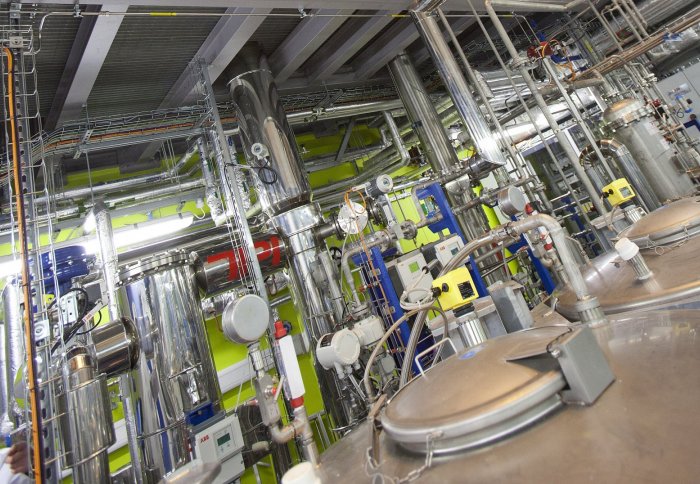Building low-carbon bridges with Australia

Imperial College London is working with Australia's CSIRO to fund research and development of clean fossil fuels.
Carbon capture and storage (CCS) is considered by many to be one of the key technologies needed for a transition to a low-carbon energy sector. The latest collaboration between Imperial College London and the Australia-based Commonwealth Scientific and Industrial Research Organisation (CSIRO) will focus on further developing the technology to help meet ambitious climate change targets.
The collaboration will fund two new studentships to explore a solution where captured carbon can be stored in old underground oil and gas reservoirs. Once the oil or gas has been extracted from these pockets hundreds of metres underground it is hoped that they could be used as a storage site for carbon dioxide (CO2). The projects will look at how natural gas, oil and CO2 behave, and can be contained, in these empty reservoirs.
Each project will tackle a different side to the problem. The first will look at new approaches to monitoring the behaviour of CO2 storage reservoirs using modified versions of techniques traditionally used in petroleum exploration by the oil and gas industry. The second will use cutting-edge, non-invasive techniques to understand the interactions between natural gas, oil and CO2 in unconventional gas reservoirs, with a view to developing combined CO2 utilisation and storage (CCUS) technologies. Together the projects will improve how we get the CO2 into the reservoirs and how we manage and monitor them once it is in there. Crucially, this work will be built around real-world scenarios, through CSIRO’s involvement in Australia’s CCS demonstrator projects, such as the Otway project on the South coast of Australia.
“These two shared studentships are an exciting step toward building a working relationship between CSIRO and one of the world’s leading academic institutions in the CCS area. We are thrilled to be able to share our knowledge and links to our world-class carbon dioxide storage demonstration facilities with Imperial College London researchers as we welcome them and establish closer ties to our colleagues based in London,” says Dr Patrick G. Hartley, Research Director, Oil Gas & Fuels, CSIRO.
These kinds of international collaborations demonstrate that open innovation can thrive in such environments. It allows the inclusion of global experts from NGOs, industry and academia and fosters closer links between the UK and Australia on many issues, including the deployment of CCS on a commercial scale.
Geoffrey Maitland, Professor of Energy Engineering at Imperial College London’s Department of Chemical Engineering says: “At Imperial we have a highly active CCS research environment and this unique opportunity to take our research out of the laboratory and into the field is truly exciting. Working with CSIRO also promotes knowledge sharing between likeminded researchers from different regional settings allowing a sustainable pathway for the development of CCS to be identified.”
Article text (excluding photos or graphics) © Imperial College London.
Photos and graphics subject to third party copyright used with permission or © Imperial College London.
Reporter
Neasan O'Neill
Faculty of Engineering
Michael Panagopulos
Department of Chemical Engineering